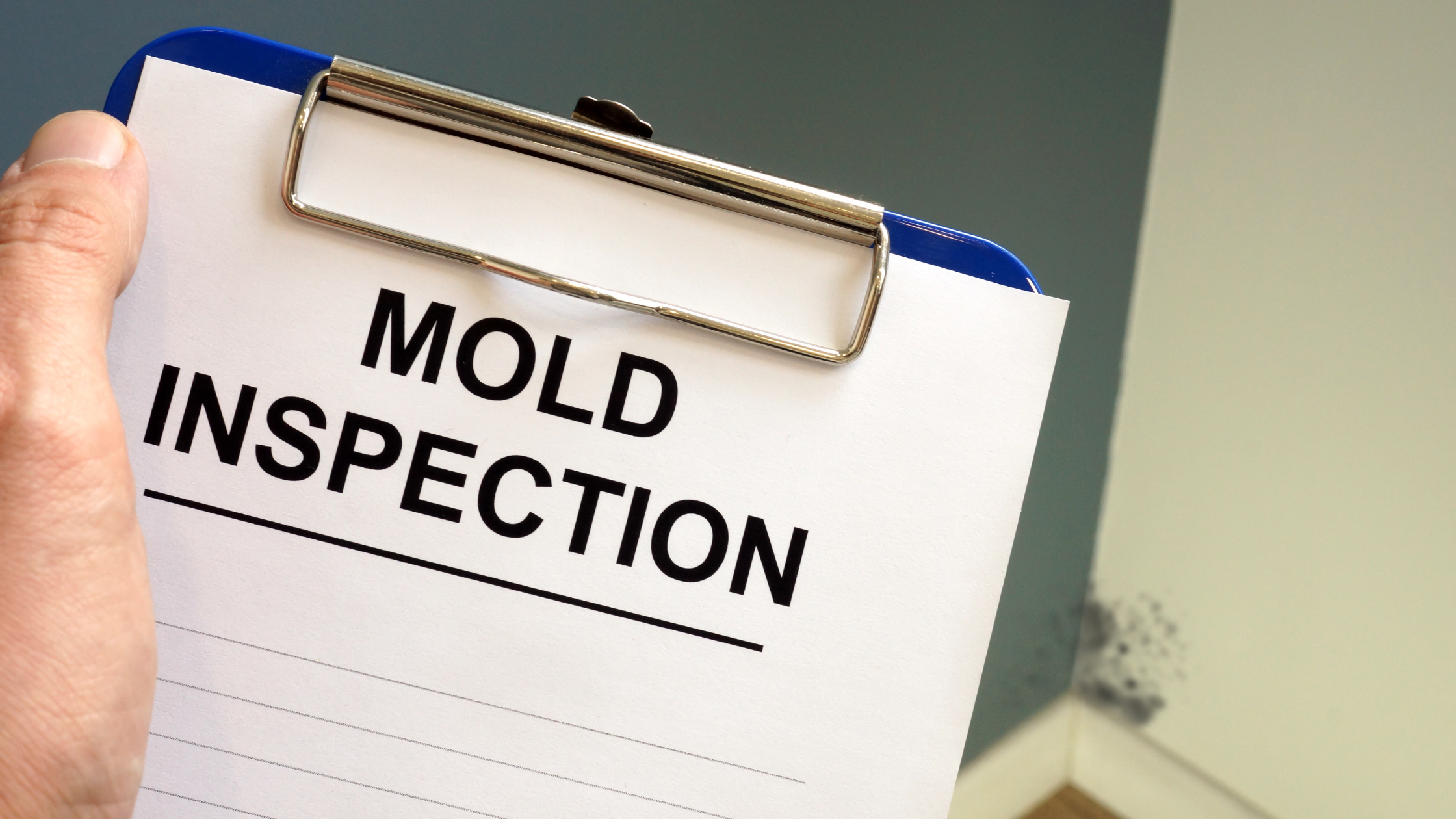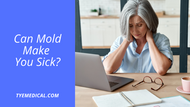Can Mold Really Make You Sick? Why Its Health Effects Are Debated
Written by TYE Medical on Jun 13th 2023
You’ll find these pervasive microorganisms nearly everywhere. Mold grows in the damp areas inside your home or office, as well as in shady spots outside and where leaves and grass decompose. Even certain food crops can be a source for mold.
So what’s the big deal? Molds produce spores that are easily spread and float through the air, eventually settling on a surface or breathed into your lungs. Not only can you breathe mold spores, but you can also touch it and eat it. Science has established mold as an allergen for some people at moderate levels.
But the mold debate isn’t about mold as an allergen as much as it is about mold being the cause of more severe health symptoms when exposed to higher levels. Here is why mold-related health problems are in question and why some people insist mold can really make you sick.
Mold As an Allergen

Mainstream modern medicine largely relies on research findings and scientific studies for the diagnosis and treatment of illnesses. Researchers have determined that mold acts as an allergen to susceptible people and causes common allergy symptoms like a sore throat, runny nose, coughing, and sneezing. Typically, a skin test can reveal whether you have a mold allergy.
In this sense, mold’s health effects are easily determined and clearly science-backed. But when it comes to how mold might cause other health issues or what might develop with heavier exposure, scientific studies are lacking.
So what’s the problem?
Research on Mold-Related Health Problems Is Limited

We don’t really understand the effects of mold exposure and how much mold it takes to cause those health effects. There is still a lot we don’t know beyond its role as a traditional allergen. Solid scientific study would require researchers to expose some people to higher levels of mold and put them at risk, which has ethical limitations. But this would be the method required to produce the best clinical trials.
Additionally, it’s common for people to be exposed to multiple types of molds that are often combined with bacteria and other microorganisms. This means that isolating the specific cause of a health effect is highly challenging.
Currently, researchers focus on studying how people are affected after flooding, but this doesn’t give comprehensive scientific results or answer many of the questions that arise from mold exposure outside of flood situations.
But most scientists and experts agree that exposure to too much mold is bad for your health.
Ways You’re Exposed to Mold

Since mold spores permeate the air indoors and outdoors, you can come into contact with it in several ways.
You Touch Mold
Depending on your mold sensitivity, when it gets on your skin it can cause redness or swelling. You might notice large warts or lesions if it gets into cuts. It’s easy to come into contact with it when you’re scrubbing nasty stuff from your shower or carrying musty boxes from the basement or garage. It’s best to use protective gloves in these situations.
You Eat Mold
You don’t have to touch or breath mold to have an allergic reaction. You can also experience allergy symptoms and respiratory problems from eating mold.
While hard cheeses can be enjoyed when you scrape the mold from the outside, be sure to go at least an inch deep when you remove it to ensure that you have removed the mold branches and roots. This is why it’s best to throw out bread and other moldy foods. Often the branches and roots run deep and there is no way to safely salvage the food item without the risk of eating mold.
You Inhale Mold
This is how most of us are exposed to mold on a regular basis. We’re always breathing some type of mold. Problems arise when we inhale too much over a long period of time. Or, we could notice effects if there is a sudden exposure to large amounts of mold. This could happen when you’re out gardening for the day and are suddenly breathing in a big dose of mold present in the mulch. This could cause some noticeable symptoms, although severity will depend on how sensitive you are to mold.
How High Levels of Mold Can Make You Sick

While science hasn’t been able to establish supporting studies, many people with high exposure to mold report health issues beyond typical allergy symptoms. These effects commonly include:
- Fatigue
- Headaches
- Brain fog
- Body pain
- Skin rashes
- Heart palpitations
Younger, previously healthy, and active people have reported a decline in their health after moving into a home, workplace, or even using a vehicle with high levels of mold present.
Scientific studies continue to unearth mold’s negative health effects on animals (typically mice), which include cognitive impacts like memory loss, as well as emotional symptoms like anxiety. Some research even shows brain inflammation in those with prolonged mold exposure at upper levels.
What If You Think You’ve Been Over-Exposed to Mold?

If you suspect mold is making you sick, you can ask your doctor for a mold sensitivity test. Not all doctors believe that mold can cause more serious health problems, and so you may need to find a doctor that does.
Additionally, you can purchase a home mold test kit to identify mold in your home or workplace. You will also want to physically inspect these spaces for visible signs of mold.
If you identify a source of heavy mold exposure, you may need to contact professional services to comprehensively remove existing mold and its sources. Professionals can also protect your home or office from the growth of additional mold by installing vapor barriers in crawl spaces, for example.


